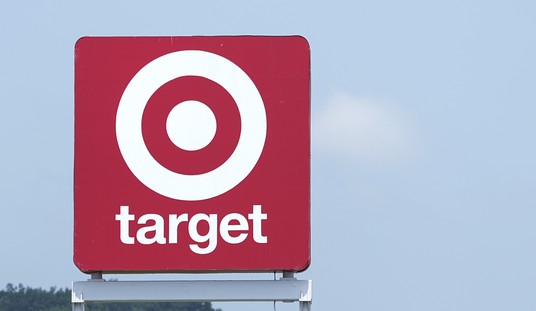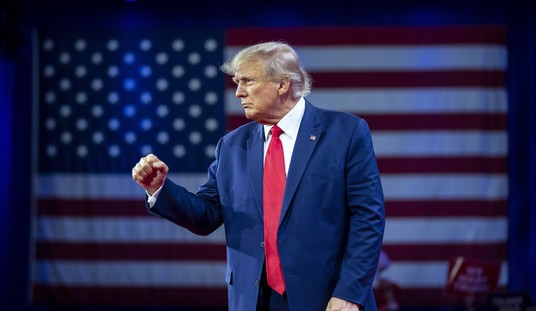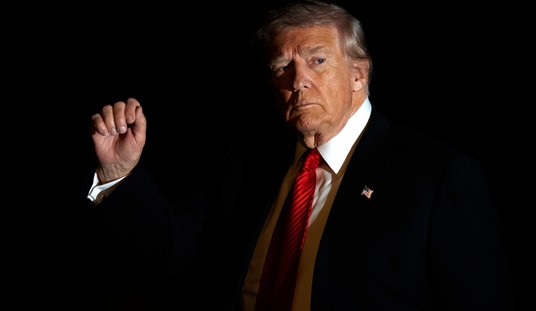After treading cautiously on the issue of the Benghazi terror attack for the past few weeks, Mitt Romney plans to deliver a broadside against Barack Obama on what Democrats had bragged about being the incumbent’s strong suit — foreign policy. In remarks Romney will deliver today at the Virginia Military Institute, the Republican nominee will blast Obama’s passivity in foreign affairs and argue for a more muscular approach in order to control events rather than be controlled by them. That will include what Politico calls “his harshest language yet” on the assassination of a US Ambassador and the Obama administration’s response:
The attacks on America last month should not be seen as random acts,” Romney plans to say. “They are expressions of a larger struggle that is playing out across the broader Middle East — a region that is now in the midst of the most profound upheaval in a century. And the fault lines of this struggle can be seen clearly in Benghazi itself.”
Romney’s advisers say he will offer fresh details of how he’d change course in the region if he wins the White House in November. This speech is the outgrowth of an internal debate at Romney’s Boston headquarters about how much time to spend on foreign policy in an election that will be decided on the economy and how forcefully to knock the president after a poorly-timed initial statement that backfired.
Besides Virginia’s role as a prized swing state, campaign officials said they chose VMI as the venue because George Marshall — the former Army chief of staff during WWII who became secretary of State and then Defense during the early years of the Cold War — is an alumnus. Romney will open and close his speech with homage to Marshall, quoting Winston Churchill to praise Marshall for always fighting against “defeatism, discouragement and disillusion.”
Romney advisers say Romney will try to position himself as the continuation of a bipartisan foreign policy tradition going back to Harry Truman, John F. Kennedy and Ronald Reagan that emphasizes U.S. strength.
Fox News Insider has more of the prepared remarks:
I know the President hopes for a safer, freer, and a more prosperous Middle East allied with the United States. I share this hope. But hope is not a strategy. We cannot support our friends and defeat our enemies in the Middle East when our words are not backed up by deeds, when our defense spending is being arbitrarily and deeply cut, when we have no trade agenda to speak of, and the perception of our strategy is not one of partnership, but of passivity. …
I believe that if America does not lead, others will—others who do not share our interests and our values—and the world will grow darker, for our friends and for us. America’s security and the cause of freedom cannot afford four more years like the last four years. I am running for President because I believe the leader of the free world has a duty, to our citizens, and to our friends everywhere, to use America’s great influence—wisely, with solemnity and without false pride, but also firmly and actively—to shape events in ways that secure our interests, further our values, prevent conflict, and make the world better—not perfect, but better.
Democrats opened up this line of attack in two ways. First, they very overtly brought up the topic repeatedly in Charlotte during the convention, especially on the final night, as John Kerry, Joe Biden, and Obama himself attacked the Republican ticket for their lack of experience on foreign affairs. I interviewed Romney in 2007 and stuck to foreign policy almost exclusively, and I knew this was a trap for Democrats even before the Benghazi attack. Romney has an extensive knowledge of foreign policy, especially on trade, but by far not exclusive to it.
The incoherent and downright dishonest response to the Benghazi attack, however, opened up a huge opportunity on what had been perceived — by Democrats, at least — as the strongest part of Obama’s foreign-policy track record: the Arab Spring. In fact, the Benghazi attack was an all-around debacle, with the State Department failing to respond to obvious and building threats with better security to the outrageous deceptions staged by the White House to spin the terrorist attack as a movie review riot. The sheer incompetence leaves Romney an opening to underscore the narrative of a chief executive far out of his depth, and leaving America flailing for direction and success at home and abroad.
It’s possible to overplay this hand, but Romney is a very disciplined candidate. I’d expect his tone to be one of disappointment rather than anger, and the overall direction to be forward-looking rather than overly retrospective. With the Obama administration still fumbling on Benghazi and new revelations surfacing daily, Romney can win simply by projecting an image of competence and promising a return to a focus on American interests abroad.
The speech starts at 11:20 ET. If I can find an embed code for the live broadcast, I’ll include it. In the meantime, you can catch it here on C-SPAN live.
Update: Here it is, live:
Visit NBCNews.com for breaking news, world news, and news about the economy








Join the conversation as a VIP Member